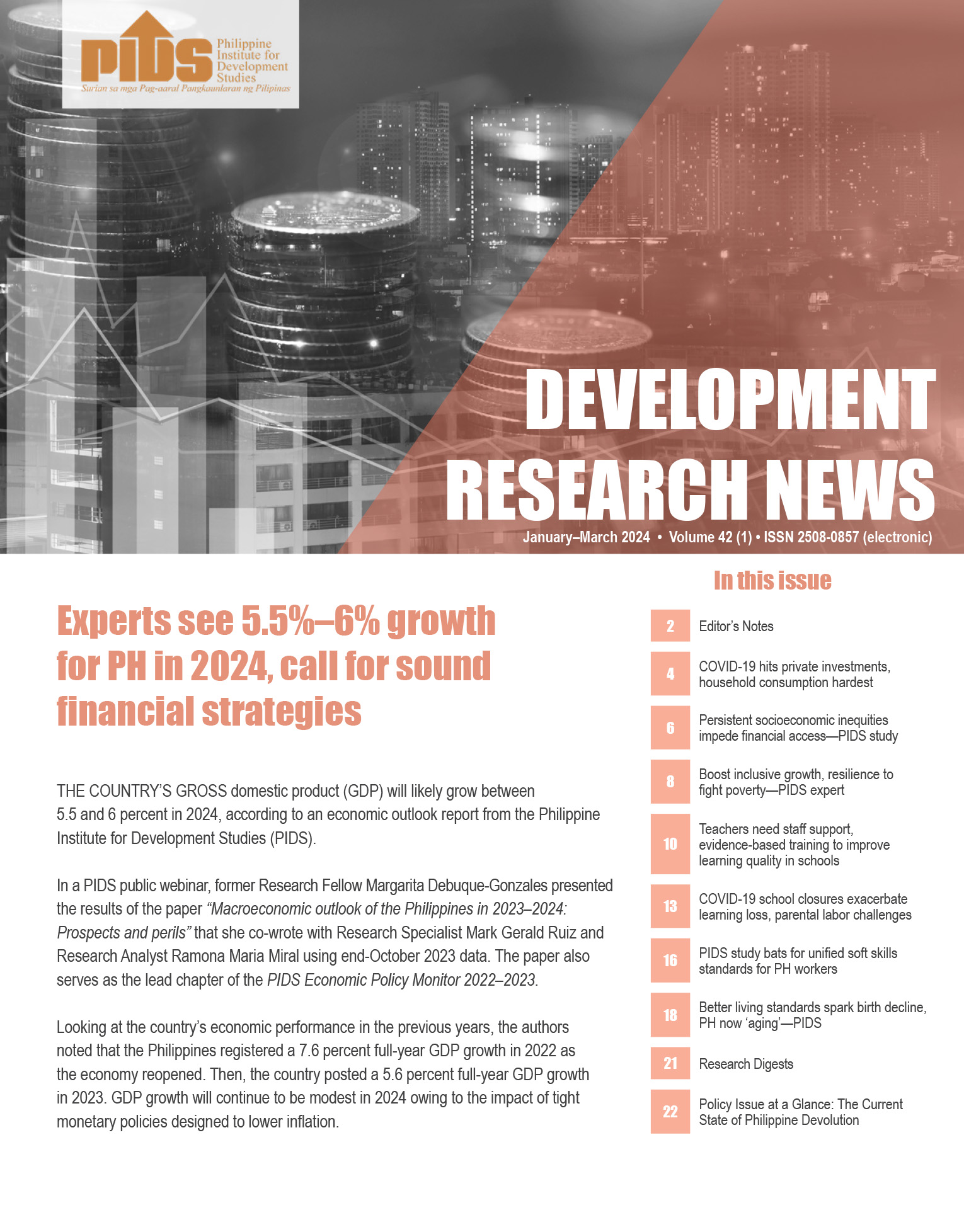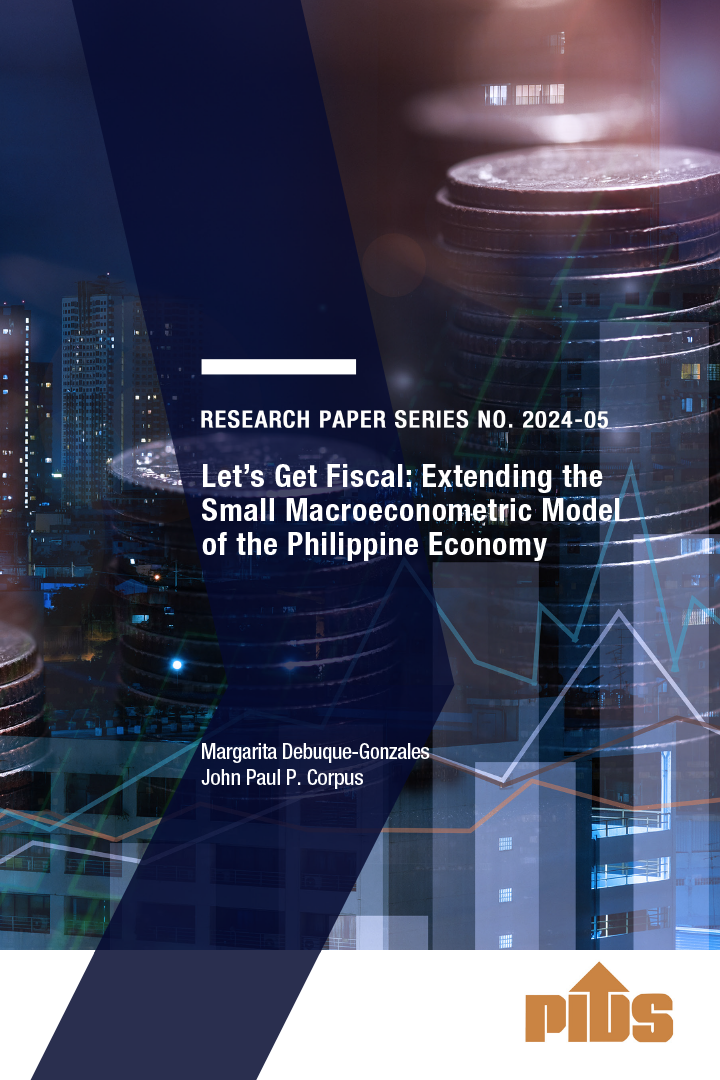Government researchers at the Philippine Institute of Development Studies (PIDS) urged the Marcos administration to address “pandemic scars” and continue the policy momentum in light of their anticipation of a below-target economic growth in 2023.
In a report penned by PIDS senior research fellow Margarita Debuque-Gonzales, supervising research specialist John Paul Corpus and research Analyst Ramona Maria Miral, the state-run think tank predicted that Philippine gross domestic product would grow by only 4.5 to 5.5 percent next year, in part due to global headwinds.
To steer the economy through these challenges, Debuque-Gonzales and her co-authors outlined key priorities that policymakers should consider.
One is the careful calibration of monetary policy, saying it is needed to prevent stifling economic recovery, considering that taming rapid inflation can be “difficult and extremely costly.”
The research, which was based on the study titled Macroeconomic Prospects of the Philippines in 2022–2023: Steering through Global Headwinds, also recommended that the government continue smoothening foreign exchange rate volatility while maintaining flexibility.
“Avoiding severe exchange rate fluctuations should be a priority,” they said. “However, the appropriate response must again depend on the nature of the exchange rate shock as well as its impact on the monetary and financial sectors.”
In addition, the team urged the government to protect those at risk from the lingering effects of the pandemic and rising inflation while pursuing fiscal sustainability.
Financial stability
“In an uncertain environment, financial regulators will need to stay vigilant and guard against possible threats to financial stability that could set off an adverse macro-financial feedback loop,” the team said. These uncertainties here and abroad contributed to PIDS’ growth outlook next year that is less rosy than that of the Development Budget Coordination Committee, which sees 2023 growth of 6 to 7 percent, which Finance Secretary Benjamin Diokno said was impressive considering the slower growth in neighboring countries.
Diokno reiterated that the early enactment of the P5.2-trillion national budget for 2023 will help fuel a pace of growth that achieves the target.
The enactment earlier this month of the 2023 General Appropriations Act “means that the programs and projects of the national government will start to run from day one of the new year,” Diokno said.
He said the early passage of the 2023 spending plan would enable agencies to start implementing their programs and projects as early as January.
The finance chief said this was especially critical for infrastructure departments, like the Department of Public Works and Highways and Department of Transportation, since construction is best done during the first six months of the year.
“Ideally, public construction has to start in the first half of the year because of the favorable weather conditions: more sunny, less rainy days,” Diokno said. INQ












